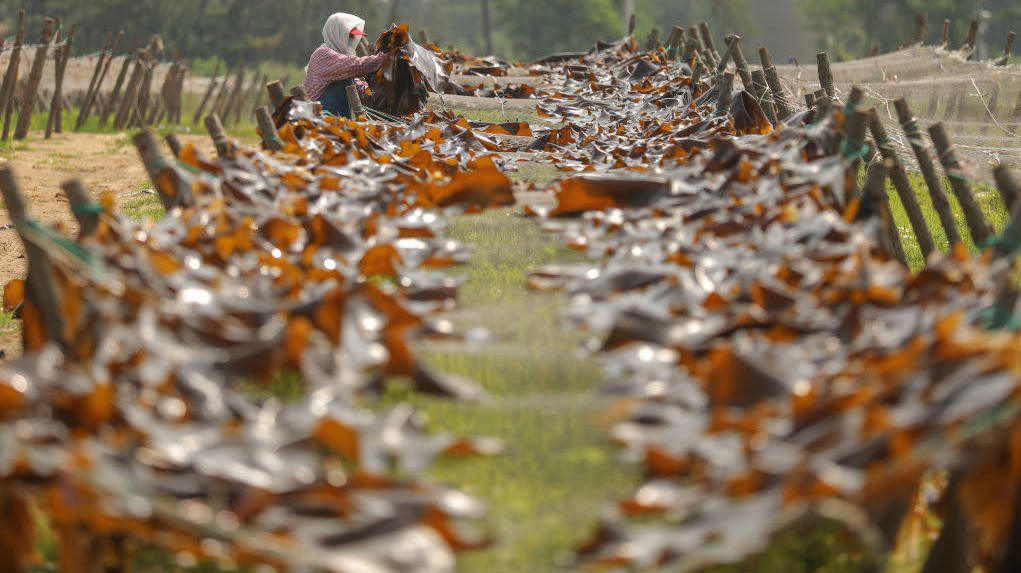The World's Fastest Growing Food Sector Is Not On Land
When you think about the areas of food production poised for the most growth in the months and years ahead, what do you think of? If I had to guess offhand, I'd probably say something grain related, like wheat, or maybe the legume that appears to be in everything we eat: soy. But no, as always, I would have been wrong. The answer is seaweed.
That concept is pretty fascinating to me. And seaweed cultivation is really starting to take off in India. This in-depth article from the BBC takes a close look at how and why this is all happening.
For the most part, aside from being used in Indian folk medicine, seaweed hasn't played a big role in Indian culture. But picking the ocean bounty has been a long-time practice in coastal areas such as the Gulf of Mannar, which is known for its biodiversity. It's here that local people have been gathering seaweed that's natural to the area, and villages in these places are models for seaweed cultivation. Growth in seaweed as a food product is increasing by 8% every year now.
Multiple other factors contribute to the rise in seaweed as food: The coastline is suitable to sustain seaweed due to its climate, shallow water, and nutrient availability. Also, India has a highly agrarian economy, and seaweed is nutritionally dense, providing iodine, vitamins, and protein. It's easy to see why seaweed makes such a good crop.
But there's more. Seaweed gets its energy by photosynthesis, meaning that it absorbs carbon dioxide to convert the carbon into sugar, releasing oxygen into the water. It used to be thought that the carbon stored in the seaweed would be released when the plant decomposed in the ocean later, but discoveries later indicated that it sank to the seafloor, where all the carbon ended up being locked into sediment. This means that seaweed has the potential to be used as a way to trap carbon and help mitigate climate change.
Seaweed is an anchor for the marine food chain, providing a place for animals to live. There are downsides, however: unchecked seaweed growth can damage coral reefs, and some reef fish prefer coral that isn't surrounded with seaweed. Then again, we'd probably cull the excess seaweed from the ocean once enough people taste the magic of seaweed that tastes like bacon.
The BBC article is packed with information on the rise in seaweed, including socioeconomic variables that include more money and jobs for women, so do yourself a favor and give the piece a read. I feel like I did my small part for the industry yesterday by snacking on a bunch of seaweed on the couch, and you should too, because frankly, it's delicious.
